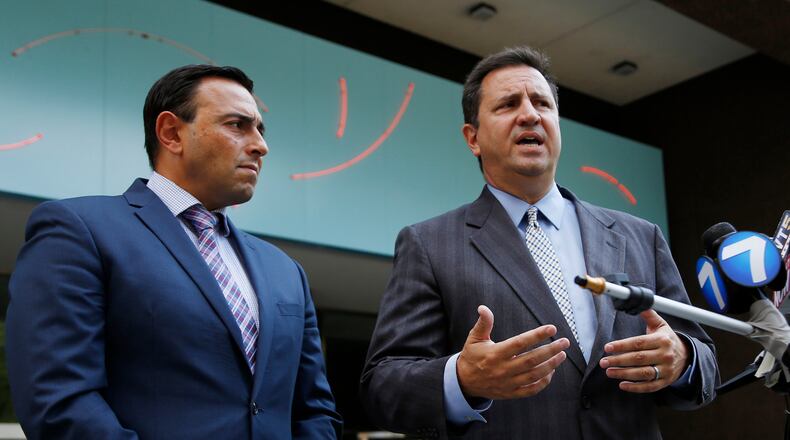RELATED: Dayton shooter hid gun, ammo from parents, new documents allege
In a motion filed Friday in federal court, defense attorney Nick Gounaris argued that the court should consider “all reasonable alternatives” to detention.
“The government alleges that Mr. Kollie made a false statement on a firearm application and that he was in possession of a firearm by an unlawful user,” the filing states. “Neither offense requires a mandatory prison sentence with a conviction.”
RELATED: Judge orders shooter's friend detained without bond
The filing also argues that a federal Pretrial Services Office investigation “did not voice any concern” in a review of a potential home detention location for Kollie.
Kollie faces federal charges of possession of a firearm by an unlawful user/addict of a controlled substance and making a false statement regarding firearms.
According to a 2018 federal report, of more than 12,700 U.S. Justice Dept. Alcohol Tobacco and Firearms (ATF) investigations into people thought to have lied on the federal National Instant Criminal Background Check System in fiscal 2017 — people whose gun purchases were denied for that reason — only 12 of those cases resulted in actual prosecutions.
RELATED: Prosecutions for 'lie and buy' gun purchases have been rare
The Aug. 16 detention order wrapped up a two-day hearing in federal court on where and how to detain Kollie.
Federal investigators have said that there was no evidence that Kollie, 24, took any part in planning Betts’ killing spree on East Fifth Street.
Defense had argued that Kollie should be detained at the area home of a family friend under electronic monitoring.
But Vipal Patel, first assistant U.S. attorney, argued that the defense team’s suggested home detention location was problematic, saying Kollie would be left with a “third party” not related to him.
MORE: 'American Factory:' Fuyao CEO disputes film translations
Calling defense’s suggestion a “fundamentally bad idea,” Patel said in the hearing last week: “We should not contract out our federal detention.”
Magistrate Michael Newman also expressed concerns about Kollie’s past use of drugs and what he termed mental health issues raised in a pre-trial assessment of Kollie. Newman has not elaborated on those concerns in open court.
A message was left with a spokeswoman for the U.S. attorney’s office of the Southern District of Ohio Friday afternoon.
About the Author

